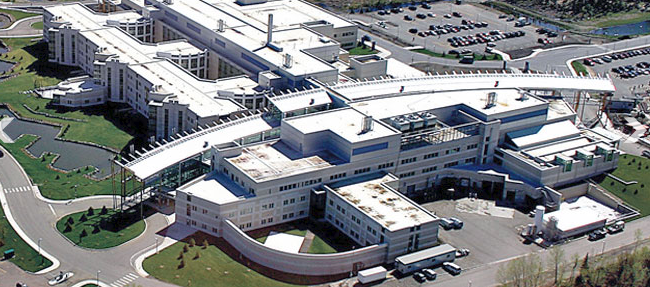THUNDER BAY — An over-capacity patient load has become such a chronic problem at the Thunder Bay Regional Health Sciences Centre that hospital officials now consider it to be the new normal.
From Jan.1 to Sept.ember 30 of this year, the hospital was in gridlock—"surge capacity" in HSC phraseology— 94 per cent of the time, meaning it had admitted more patients to beds than the number for which it receives regular Ministry of Health funding.
"This problem is not going to go away. I suspect we're going to be in surge...for a good number of years," says Dr. Stewart Kennedy, executive vice-president at the HSC.
The hospital was originally built and funded to accommodate 375 beds. As of Wednesday, it had 457 admitted patients, including 39 in beds "on loan" from the St. Joseph's Care Group at Hogarth Riverview Manor.
Kennedy said the health ministry currently provides money for 12 additional beds, so the HSC must apply to the Local Health Integration Network for funding any beds beyond 387.
Given the demographics and overall health status of residents of the Thunder Bay region, that requirement's not likely to change anytime soon.
"Our aging population, our complexity of disease, is going to put us into surge for a longer period of time than we ever anticipated," Kennedy said.
The hospital is holding out some hope for additional support from the province, which he said recently identified the city as one of the communities needing additional capacity.
In the meantime, the HSC is challenged not only to open more beds but also to find more nursing and professional staff support.
"Not that we have a shortage of nurses," Kennedy said, "but certainly we need nurses to come in not for a full-time position, but to help provide relief. Most of them are working full-time or part-time and they are unable to give those excess hours that we require."
With the flu season approaching, the hospital is bracing for the pressure on capacity to gain momentum right into the new year.
"We usually reach our maximum surge come early January and into February. We're very concerned how that's going to affect the hospital...especially if we're hit with a bad flu season," Kennedy said.
He noted that hospital officials and staff are currently collaborating with the LHIN, the primary care sector and St. Joseph's Care Group to ensure relief is available should additional resources be required.
Kennedy suggested the public has a role to play, as well, in helping the hospital operate as efficiently as possible during gridlock.
"The public has to be more understanding, you know, about whether they always need to come into the hospital to obtain their needs or whether they can look at outside providers like primary care."
He said he believes people are getting that message, as the number of individuals coming to the emergency department with minor conditions has fallen over the past year.
"We'll never turn anyone away from this hospital that's sick, and we'll continue to provide the care that's required," Kennedy stressed.
